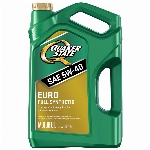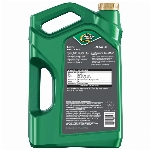- Joined
- Mar 20, 2022
- Messages
- 10
Hello folks,
I have a 2018 VW Golf R with direct injection. The first 30K miles I used Castrol 5W-40 and now I am using 0W-40.
At some point, I might have to worry about intake valve deposits, so can I use a low(er) SAPS oil instead? I don't think they are "backwards compatible" with the VW specs listed on my engine (VW 502 and 504), but then again, my car was made right as the US had new standards for lower sulfur gas.
My understanding is that with the lower SAPS oils, I will have to use a shorter interval like 5000 miles instead of the original specs which "guarantee" 10k.
Also, some of these low(er) SAPS oils claim a 0.8 number, whereas my current Castrol claims 1.3. Does that mean that deposits will only build up 62% slower?
This car is mostly used for short commutes for work, but I read that a long drive can also help "burn off" intake deposits. In that case, what would make a bigger difference - running the low SAPS oil, or purposely going on a long drive once in a while?
I have a 2018 VW Golf R with direct injection. The first 30K miles I used Castrol 5W-40 and now I am using 0W-40.
At some point, I might have to worry about intake valve deposits, so can I use a low(er) SAPS oil instead? I don't think they are "backwards compatible" with the VW specs listed on my engine (VW 502 and 504), but then again, my car was made right as the US had new standards for lower sulfur gas.
My understanding is that with the lower SAPS oils, I will have to use a shorter interval like 5000 miles instead of the original specs which "guarantee" 10k.
Also, some of these low(er) SAPS oils claim a 0.8 number, whereas my current Castrol claims 1.3. Does that mean that deposits will only build up 62% slower?
This car is mostly used for short commutes for work, but I read that a long drive can also help "burn off" intake deposits. In that case, what would make a bigger difference - running the low SAPS oil, or purposely going on a long drive once in a while?


